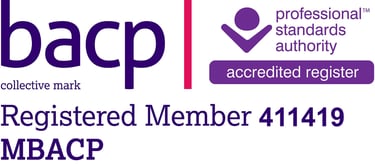When Conversations Don't Come Naturally
Many people find conversations challenging—especially if you're anxious, neurodivergent, or naturally quiet. Here's why that’s okay, and how therapy can help.
David Bushell whitstable counsellor
6/23/20252 min read


When Conversations Don’t Come Naturally
For some people, conversations seem effortless—words flow, eye contact is steady, and pauses are just part of the rhythm. But for many others, talking with others feels anything but natural. It can feel like navigating a maze with no map.
If you’ve ever felt nervous before speaking, or worried about what to say next, you’re not alone.
Whether it’s social anxiety, a neurodivergent way of processing the world, or simply never having learned the “rules” of small talk, holding a conversation can be exhausting. You might find yourself overthinking every word, planning what to say before you even speak, or mentally replaying interactions long after they’ve ended.
Why It Can Be So Difficult
There are many reasons why conversation doesn’t come easily—and none of them mean there’s something “wrong” with you. You might:
Be socially or performance anxious, where talking feels like pressure to "get it right"
Find reading social cues difficult, which can leave you feeling unsure or off-balance
Be neurodivergent, and masking your true self in conversation can feel draining
Feel overstimulated, especially in busy or noisy environments
Be naturally reflective or introverted, and struggle with the speed or surface-level nature of everyday chats
Find that others dominate conversations or talk over you
These are very real, very human experiences. They deserve care—not judgment.
The Hidden Cost of “Just Talking”
When conversation doesn’t come naturally, it can become a source of shame or self-doubt. You might:
Avoid social settings altogether
Rehearse or script what you want to say
Replay past conversations over and over
Feel isolated, even around others
This can lead to a painful sense of disconnection—not because you don’t want to connect, but because the way connection tends to happen doesn’t always fit you.
You’re Not Broken
It bears repeating: struggling with conversation doesn’t mean there’s something wrong with you.
Communication is a skill, shaped by your wiring, your genes, the social community you grew up in, your experiences, and your environment.
There’s more than one “right” way to be in the world. And there’s more than one way to connect.
In Therapy, Conversation Can Feel Different
Many clients tell me that talking in therapy feels unlike any other kind of conversation they’ve had.
And that’s intentional.
In counselling:
You don’t need to perform or make small talk
Silences are welcome, not awkward
You can say, “I don’t know” or “I don’t have the words for this yet”
We go at your pace
You’ll never be talked over
It’s not about being a good talker—it’s about being heard, understood, and safe to be yourself.
A Gentle Invitation
If conversations feel hard, know that you're not alone—and you're not the only one who finds it exhausting or overwhelming.
Therapy can be a space where you don’t have to get it right. Where you can explore what makes it difficult. And maybe, in time, where you find your voice.
If that sounds like something you’d like support with, you’re very welcome to get in touch or find out more about how I work.
David.
Contact: 07881 820087


